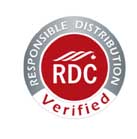Best Practices, Chemical Transportation, Hazmat Transportation, Industry Information
How a Little Bit of Diligence in Carrier Selection Can Avoid Some Serious Problems.
In the event of a chemical spill, an accident, a cargo claim, or cargo theft, everyone goes looking for someone to blame. Don’t let that person be you. Make sure you have a tight policy on carrier selection and qualification and make sure you have clearly defined who can approve new transportation providers
Read MoreChemical Transportation, Hazmat Transportation, Welcome to DSN Chemical Transportation
A year in Review: Chemical Transportation
The topic of this article in my Chemical Transportation Blog is a review of chemical transportation in 2010 and any and all highlights involving chemical transportation in 2010. I’ve also included links to the specific articles in my Chemical Transportation Blog that explain each in more detail. 2010 was a…
Read MoreBest Practices, Chemical Transportation, Hazmat Transportation
Evaluating the Safety of Your Chemical and Hazmat Carriers
Carrier selection is often one of the most difficult tasks for a logistics manager. There is a constant battle not only between cost and quality, but also, safety. The purpose of this article is to offer some advice and guidance to chemical logistics managers on how to evaluate the safety…
Read MoreBest Practices, Chemical Transportation, Hazmat Transportation
What a 3PL Can do for YOU
A 3PL (Third Party Logistics Company) is a non-asset based company (doesn’t own trucks or equipment) that can help you
1. reduce costs,
2. reduce risk
3. save time and expense in the implementation of your logistics strategy.
Here’s how they do it….
Read MoreChemical Transportation, Hazmat Transportation
Security Plan Requirements for TDG Now Risk Based
Update on the new rules and clarifications for security plans under TDG. Rules are now risk based.
Read MoreBest Practices, Chemical Transportation, Hazmat Transportation
What are those 24-Hour Emergency Response Numbers?
CANUTEC and CHEMTREC 24-hour emergency response numbers defined.
Read MoreChemical Transportation, Hazmat Transportation, New DOT Regulations, New FMCSA Regulations
New Labelling Requirements for Marine Pollutants and IBC’s (Tote Tanks)
There are new labelling requirements coming out this year for marine pollutants to comply with international standards. There are also requirements for IBC’s to be labelled for stackability.
Read MoreChemical Transportation, Hazmat Transportation, New DOT Regulations
DOT Publishes new Regulations regarding phone numbers on shipping documents
In this final rule, PHMSA is amending the Hazardous Materials Regulations to clarify requirements governing emergency response information services provided by arrangement with hazardous materials offerors (shippers). In order to preserve the effectiveness of these arrangements for providing accurate and timely emergency response information, PHMSA is requiring basic identifying information (offeror name or contract number) to be included on shipping papers. This information will enable the emergency response information provider to identify the offeror on whose behalf it is accepting responsibility for providing emergency response information in the event of a hazardous materials incident and obtain additional information about the hazardous material as needed.
Read MoreChemical Transportation, Hazmat Transportation, New FMCSA Regulations
Are You Ready for CSA 2010?
The fine art of statistical analysis has finally caught up to the trucking industry. The Federal Motor Carrier’s Safety Administration (FMCSA) is completely changing the way in which they monitor carriers for compliance. Under the current system SAFESTAT, a carrier’s data from roadside inspections is collected. If the roadside inspections…
Read MoreBest Practices, Chemical Transportation, Hazmat Transportation
Best Practise When Shipping Chemical Drums via Truck Transportation
Loading Drums on the Floor vs. on pallets, that is the question.
Many shippers load drums differently into trucks. Some have a policy of loading on the floor without pallets. Others, have a policy of loading on pallets. Here are the pros and cons of both approaches.
Read More





